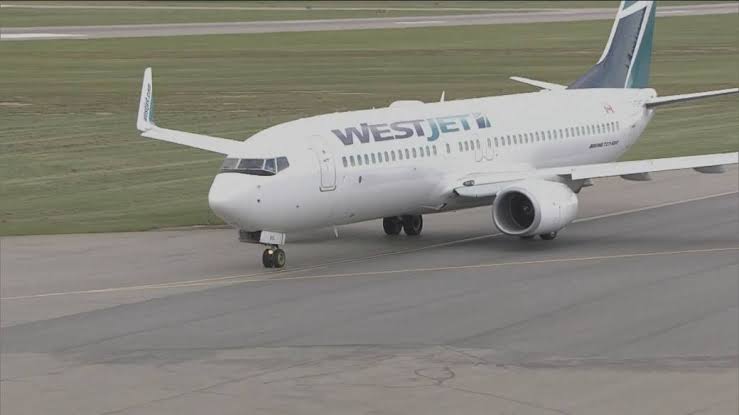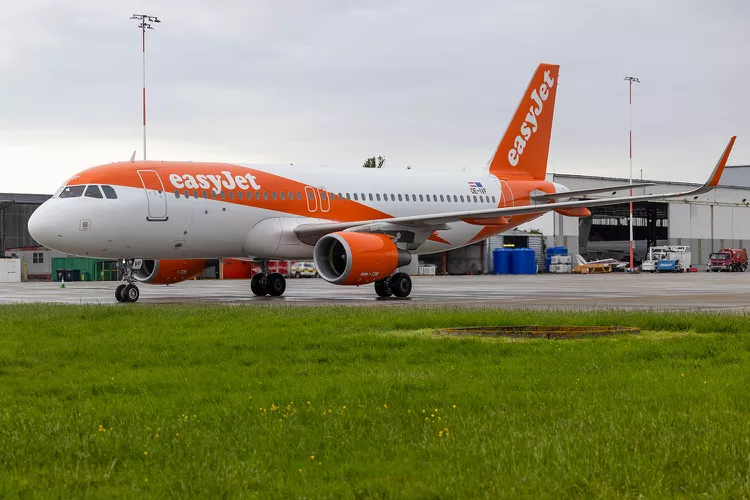Westjet Airlines Suspends All Operations Till May
WestJet Airlines Suspends All Operations Till May: What This Means for Canadian Aviation, Travelers, and the Industry at Large
In a move that has sent shockwaves across the aviation industry and created ripples of concern among travelers and stakeholders alike, WestJet Airlines has announced a complete suspension of all its operations until May 2025. The Calgary-based airline, Canada’s second-largest carrier after Air Canada, has grounded its entire fleet citing “unprecedented economic pressures, regulatory uncertainties, and ongoing market volatility.”
This decision, which takes immediate effect, is being described as one of the most dramatic in the airline’s history. With operations halted until further notice, the implications for the aviation industry, tourism, and tens of thousands of passengers are profound and far-reaching.
A Sudden and Startling Announcement
On the morning of April 3, 2025, WestJet issued an official statement on its website and through its media channels confirming the decision to pause all operations, both domestic and international. The suspension, which will last until at least May 1st, covers all flights, including those under its regional brand, WestJet Encore, as well as WestJet Link and WestJet Vacations.
According to the company, this move is part of a larger “strategic realignment” and response to numerous operational and economic challenges. “This decision was not taken lightly,” the statement reads. “WestJet has been operating under significant financial and regulatory pressure for months. After evaluating all possible options, a temporary full suspension of operations became the only viable path to safeguard the long-term health of our airline.”
Why Did WestJet Suspend Operations?
There are multiple interwoven factors that led to this drastic measure:
1. Economic Turmoil and Rising Costs
Fuel prices have soared in recent months due to ongoing geopolitical tensions, particularly between oil-exporting nations. This has significantly raised operating costs for airlines across the globe. Additionally, inflation in Canada has put extra strain on the aviation sector as it struggles to maintain profitability while facing declining consumer spending.
2. Labour Disputes and Staffing Shortages
WestJet has faced persistent labor issues over the past year. From strikes to union negotiations involving pilots, flight attendants, and ground staff, the airline has grappled with disruptions that have impacted its scheduling and reliability. The failure to reach long-term labor agreements before the busy spring travel season may have been the final straw.
3. Demand Volatility
The Canadian travel market has seen significant swings in demand. While there was an initial rebound after the COVID-19 pandemic, consumer confidence has been fragile. Rising ticket prices, reduced routes, and broader economic uncertainty have led to many travelers postponing or canceling trips.
4. Regulatory Challenges
Ongoing trade and policy disputes between Canada and the United States have led to stricter air traffic regulations and reduced slot availability in key airports. WestJet recently had to end its Las Vegas and Seattle services earlier than expected, with other transborder routes also facing uncertainty.
5. Competitive Pressure
WestJet has been facing fierce competition from both Air Canada and ultra-low-cost carriers such as Flair Airlines and Lynx Air. The market share battle has squeezed margins and intensified fare wars, especially on popular domestic routes like Toronto-Vancouver and Calgary-Montreal.
Passenger Fallout: Cancellations and Refund Chaos
The immediate effect of this suspension is being felt by tens of thousands of passengers who had bookings with WestJet through April. The airline has said it will begin issuing full refunds for affected flights and is working with its partners to rebook passengers where possible.
However, early reports suggest that the refund process has already hit major roadblocks. Social media is flooded with posts from irate passengers who claim they have not been able to reach customer service, while some report their itineraries have vanished from the airline’s mobile app and website.
WestJet’s statement reassures customers that “a dedicated refund and rebooking team” has been activated and urges patience as they work through the backlog. They have also paused new bookings temporarily to avoid further complications.
Impact on the Travel and Tourism Industry
Tourism boards across Canada have expressed concern over the immediate and long-term impacts of this operational pause. WestJet plays a vital role in connecting smaller cities like Regina, Charlottetown, and Yellowknife to larger hubs such as Toronto, Vancouver, and Calgary.
Hotels and Resorts in destinations like Banff, Whistler, and Prince Edward Island report a surge in cancellations.
Travel Agencies have had to reschedule hundreds of clients, most of whom are facing significantly higher costs due to last-minute changes with other carriers.
International Tourists, especially from the U.S. and Europe, are facing confusion as to how to proceed with their Canadian itineraries.
The Calgary International Airport, WestJet’s primary hub, is expected to take a significant hit, both in terms of passenger volume and employment. The airport authority has already issued a statement saying it is “closely monitoring the situation and working to minimize disruptions.”
What About the Employees?
With over 14,000 employees, WestJet is one of the largest employers in Western Canada. The company has stated that no permanent layoffs are currently planned, but workers will be placed on temporary unpaid leave during the suspension period.
A WestJet pilot, who asked not to be named, told CBC: “We’re still in shock. We had no warning this was coming. There’s a lot of anger, a lot of confusion. We understand the market is tough, but to just suspend everything is drastic.”
Unions representing flight attendants and ground crew are demanding immediate clarity and severance packages for workers affected by the halt in operations.
Government Reaction and Political Ramifications
Transport Canada and the Minister of Transportation, Pablo Rodriguez, have released statements acknowledging the situation and confirming that discussions are underway with WestJet leadership. “We are evaluating all options to support the workers and passengers affected by this suspension,” said Rodriguez. “Canada cannot afford a collapse in its aviation sector.”
Opposition parties are already criticizing the federal government for what they describe as a “lack of foresight” in managing aviation policy and supporting the domestic airline industry. Conservative MP Michelle Rempel Garner tweeted: “This is a catastrophic failure of leadership. Thousands of Canadians now have no flights, no refunds, and no jobs.”
There is also increasing speculation about a potential bailout or emergency funding package to support WestJet during this suspension.
What Happens Next?
While WestJet has set May 1st as the tentative date for resuming operations, insiders suggest this could be extended depending on how negotiations with regulators, labor groups, and creditors unfold.
The airline has also hinted at a potential reorganization of its route network and operational strategy once it resumes service. Analysts say this may include:
Scaling back on unprofitable transborder routes
Increasing focus on domestic travel
Potential merger talks or partnership with foreign carriers
Divesting or restructuring its low-cost operations
Industry Experts Weigh In
Aviation experts are calling WestJet’s decision “unprecedented but not unexpected.” Dr. Jeanine Crawford, a professor of aviation economics at the University of British Columbia, said: “WestJet has been showing signs of deep structural weakness. The real surprise is that they chose to pull the plug on all operations at once rather than phasing it out route by route.”
Others warn that the longer the suspension continues, the harder it will be for WestJet to win back market share. “Air Canada, Flair, and others are already eyeing WestJet’s routes,” said Charles Morrison, an airline strategist. “If this pause lasts too long, they may not have anything to return to.”
A Turning Point for Canadian Aviation?
The grounding of WestJet is more than just a corporate crisis—it’s a national concern. The airline has played a pivotal role in democratizing air travel in Canada since its founding in 1996. From connecting underserved regions to offering affordable flights, WestJet’s presence has been crucial.
With its future hanging in the balance, many are asking tough questions: Is Canada’s aviation industry too vulnerable to shocks? Should the government provide more structured support for domestic carriers? Are airline employees and passengers bearing too much of the risk in a fragile system?
Final Thoughts
As WestJet grounds its planes and passengers scramble for alternatives, the mood in Canada’s aviation industry is one of uncertainty and unease. What happens in the next few weeks will determine not only the fate of one of the country’s most recognized airlines but may reshape the future of air travel in Canada.
For now, all eyes are on May—and on whether WestJet can fly again.




